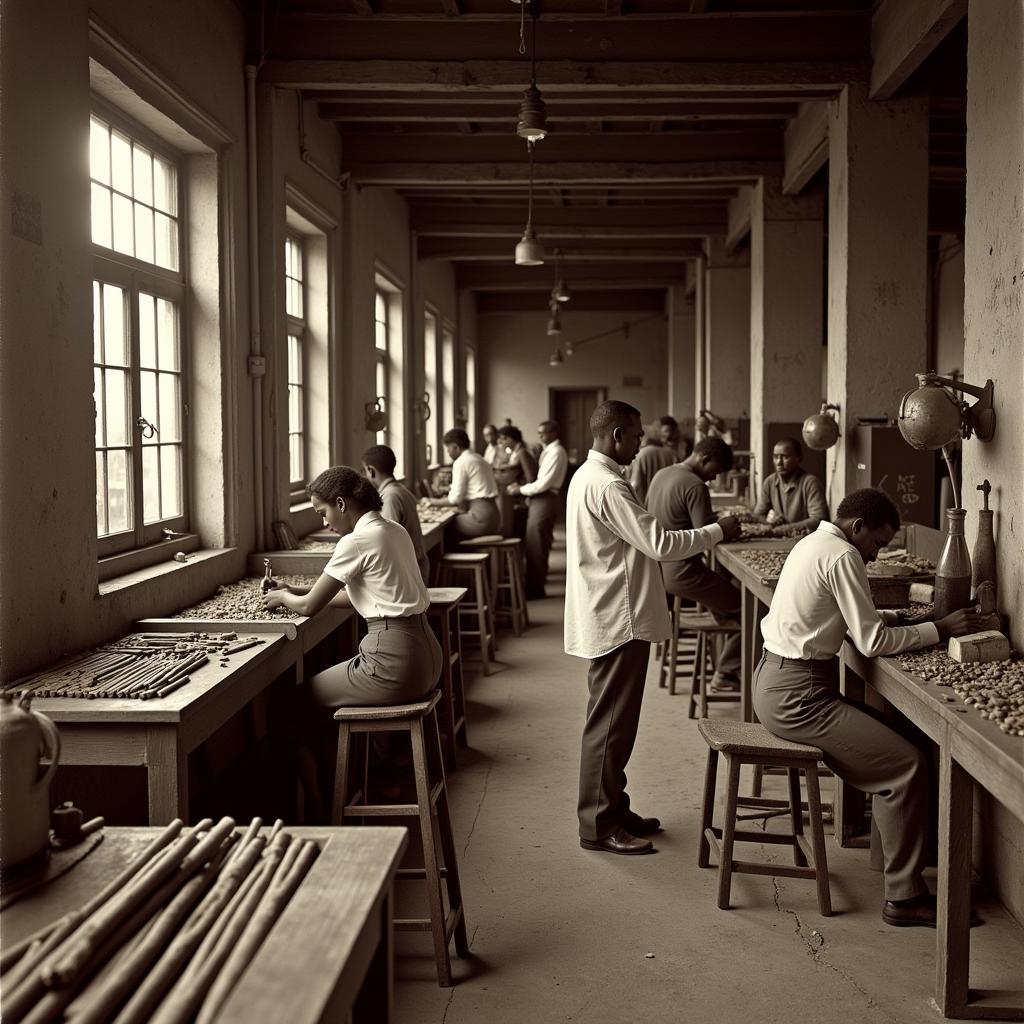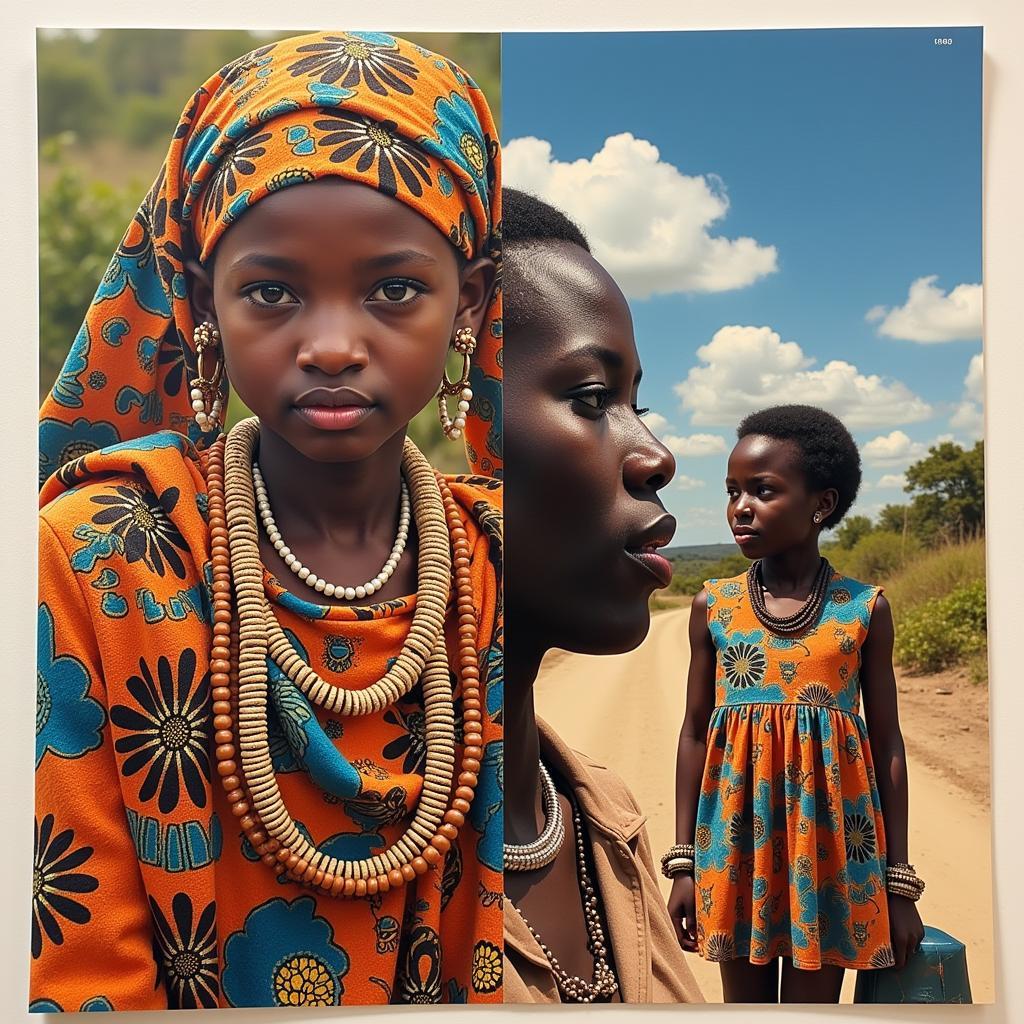African American Cigar Company: A Rich Legacy
The history of African American cigar companies is a fascinating and often overlooked aspect of both American and African American history. It’s a story of entrepreneurship, resilience, and cultural impact, woven into the fabric of the tobacco industry. From the pre-Civil War era to the present day, African Americans have played a significant role in the cigar world, establishing businesses, crafting premium cigars, and leaving a lasting mark on the industry.
The Early Days of African American Cigar Makers
Before the Civil War, enslaved Africans were forced to work in tobacco fields and factories, contributing significantly to the burgeoning tobacco industry. This forced labor provided the foundation for their later involvement in the cigar trade. Following emancipation, many formerly enslaved people sought opportunities in the cigar industry, leveraging their acquired skills to become rollers, blenders, and factory owners. This period saw the rise of several African American-owned cigar factories, particularly in major cities like Philadelphia, New York, and New Orleans.
In the late 19th and early 20th centuries, cigar making became a respected and lucrative trade for many African Americans. The craftsmanship involved in hand-rolling cigars allowed for a degree of autonomy and provided a path to economic independence. These early cigar companies not only offered employment but also became important social and cultural hubs within the African American community.
 Early African American Cigar Factory in the Late 19th Century
Early African American Cigar Factory in the Late 19th Century
The Challenges and Triumphs of African American Cigar Businesses
Despite their success, African American cigar companies faced numerous challenges, including racial discrimination, limited access to capital, and competition from larger, established white-owned businesses. They often had to rely on community support and networks to overcome these obstacles. Despite these hurdles, many African American cigar makers thrived, producing high-quality cigars and earning reputations for excellence.
One notable example is the success story of Alonzo Davis, a former slave who founded a successful cigar factory in Philadelphia in the late 1800s. Davis’s story embodies the spirit of entrepreneurship and resilience that characterized many African American cigar makers during this era. His company not only provided jobs but also became a symbol of black economic empowerment.
African American Cigar Culture and Legacy
The influence of African American cigar companies extends beyond the economic sphere. Cigar lounges and factories became important gathering places for the community, fostering social connections and political discussions. Cigars themselves became symbols of status and sophistication within African American culture, reflecting the growing economic power and social mobility of the community.
Even today, the legacy of these early African American cigar companies continues to inspire. Their stories are reminders of the entrepreneurial spirit and determination of African Americans in the face of adversity. Contemporary cigar makers continue to draw inspiration from their predecessors, upholding the tradition of quality craftsmanship and community building.
“The history of African American cigar makers is a testament to their resilience and ingenuity,” says Dr. Evelyn Carter, a historian specializing in African American business history. “They carved out a space for themselves in a challenging industry, leaving a legacy that continues to resonate today.”
Conclusion: A Continuing Story
The story of the African American Cigar Company is a vital part of American history. From the forced labor of enslaved Africans in tobacco fields to the rise of independent black-owned businesses, the journey of African Americans in the cigar industry is a testament to their perseverance and contribution to American culture and commerce. Today, African American cigar enthusiasts and entrepreneurs continue to build upon this rich legacy, ensuring that this important history is remembered and celebrated.
FAQ
- What role did African Americans play in the early tobacco industry?
- What were some of the challenges faced by African American cigar companies?
- How did cigar making become a path to economic independence for African Americans?
- What is the cultural significance of cigars within the African American community?
- Where were most African American cigar factories located?
- Are there any modern African American cigar companies operating today?
- How can I learn more about the history of African American cigar makers?
Common Scenarios and Questions:
Scenario: I’m looking for cigars made by a Black-owned company.
Question: Where can I find contemporary African American cigar brands?
Scenario: I’m researching the history of the tobacco industry.
Question: What resources are available for learning about the contributions of African Americans to cigar making?
Further Exploration:
Explore related articles on our website about the history of tobacco, the cigar industry, and African American entrepreneurship. Learn more about the cultural significance of cigars in different communities around the world.
Call to Action:
For further information or assistance, please contact us:
Phone: +255768904061
Email: kaka.mag@gmail.com
Address: Mbarali DC Mawindi, Kangaga, Tanzania.
We have a 24/7 customer service team available to assist you.

